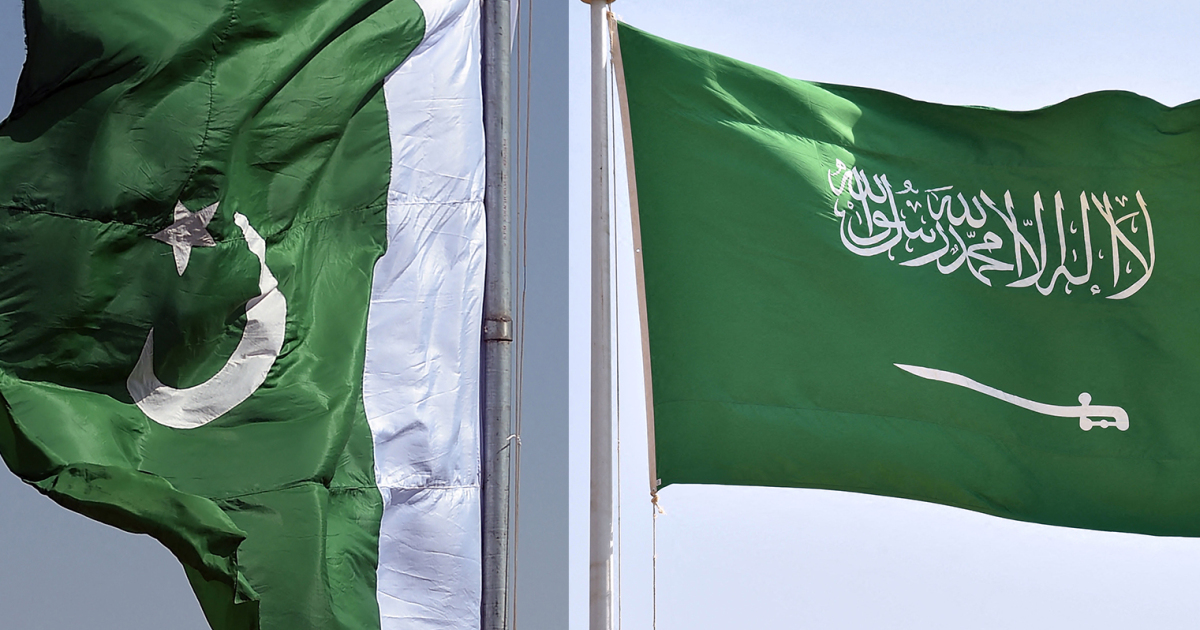
Riyadh, Saudi Arabia: A social media post was circulated by Pakistan to counter Israel for its actions against Islam where they draw the ire of Saudi Arabia. The post has now ignited a coalition between the Islamic countries. The post was share by Syed Zaid Zamad Hamid that challenged the supremacy of Riyadh in the Islamic world.
When the objectionable social media post appeared this month, the reaction was swift and loaded. Although Pakistan Embassy in Riyadh tried to douse the fire by claiming that the person responsible for the post was not related either to the government or the military, there are few takers for the lame explanation in Riyadh.
Saudi Arabia leads the 57-member coalition of Islamic countries, Organisation of Islamic Countries (OIC), a powerful front that sets the agenda for the Islamic world.
Of late, there has been a thaw in the relationship between Israel and Saudi Arabia and its allies in the Middle East. The Pakistani social media posting by an individual, suspected to be close to the military establishment, comes as a challenge to Riyadh’s diplomatic moves in the region.
Riyadh’s suspicions about Pakistani motives are not unfounded. Pakistani leaders, including Prime Minister Imran Khan and Foreign Minister Shah Muhammad Qureshi, have been criticising the kingdom for not taking up the Pakistani cause of Kashmir at the OIC meetings.
Riyadh and OIC have remained neutral on Kashmir, considering it an internal matter of another sovereign nation, India. In what Saudis consider an open revolt in the Islamic world, Islamabad has been hobnobbing with countries like Turkey and Malaysia to create a parallel alliance of Islamic countries.
In February last year, Prime Minister Imran Khan chose to speak out against Saudi Arabia during a visit to Malaysia where he had gone to elicit support for an alternative alliance.
Making an oblique reference to Saudi Arabia, Khan lamented the lack of unity among Muslim nations in Kashmir. He said, “We can’t even come together as a whole at the OIC meeting on Kashmir.”
A few months later, in August, Foreign Minister Qureshi struck a strident note against Saudi Arabia when he said in a television interview, “Today, I am telling the OIC to convene the meeting of the council of foreign ministers. If they cannot do it, then I will be compelled to ask the Prime Minister (Imran Khan) to call a meeting of Islamic countries (Iran, Turkey, Malaysia) that are ready to stand with us on the issue of Kashmir.”
The Saudis reacted sharply to the statement and decided to withdraw various monetary concessions it had been regularly bestowing on Pakistan. Taken by surprise, Pakistan Army chief Javed Bajwa rushed to Riyadh but was denied an audience with the Saudi prince for hours before being subjected to a quiet but firm tongue lashing.
Although Prime Minister Imran Khan landed in Riyadh in May this year to make up for the gaffes he and his ministers have been indulging in, Saudi Arabia has remained suspicious about Pakistani intent and actions






